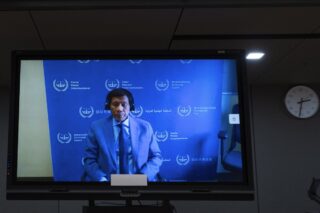WEALTHY countries such as the United States should be more careful when making policy shifts, given the implications of any move by major economies on the developing world.
The Intergovernmental Group of 24 on International Monetary Affairs and Development, widely referred to as G-24, said turbulence in advanced markets continue to spill over into otherwise-strong emerging economies.
G-24, of which the Philippines is part, is a grouping of the world’s major emerging market economies. Its members account for over half of global gross domestic product (GDP).
“Growth in the global economy is weaker than expected,” a G-24 communiqué read. The communiqué was released late last week on the sidelines of the International Monetary Fund (IMF) and World Bank annual meetings in Lima, Peru.
“Emerging markets and developing countries remain the key drivers of global growth, although some are experiencing a slowdown,” the communiqué read.
Downside risks have risen for middle-income countries like the Philippines. These risks include tightening financial conditions, reduced capital flows, and persistent low commodity prices—all results of policy moves in the developed world.
Tighter financial conditions are being caused by the US Federal Reserve’s plans to unwind its ultra-cheap monetary policies.
The US Fed is expected to implement its first rate hike in nearly a decade this December.
“In this context, we call for effective and well-sequenced policy that is adequately communicated to guard against potential financial instability risks, including those coming from normalization of US monetary policy,” G-24 said.



